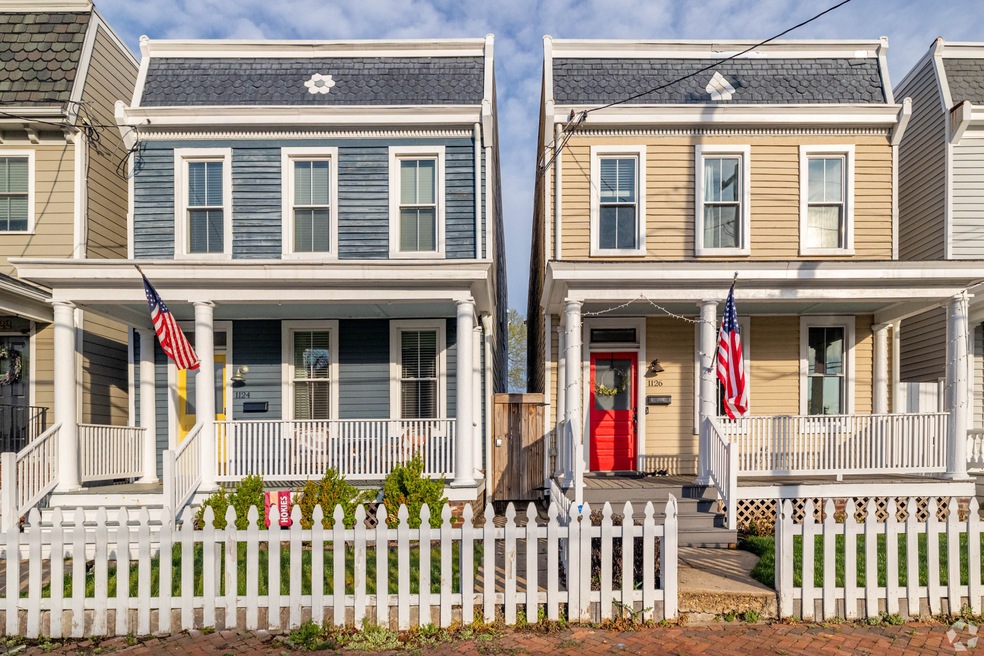Virginia is the latest state where large investment firms that buy single-family homes and rent them out are being targeted by lawmakers, who say this practice takes too many houses off the market at a time when it’s already very difficult to find an affordable home for sale.
Republican state Sen. Glen Sturtevant filed a bill in early January that would prohibit real estate entities that own more than 50 single-family or duplexes from buying more. The draft legislation also prohibits these companies from acquiring manufactured home communities, sometimes called mobile home parks.
Fellow Virginia state Sen. Schuyler VanValkenburg introduced his own bill last week to curb investors. The Democrat’s legislation takes a different approach, blocking investment groups with $50 million or more in net value or assets from acquiring an interest in single-family homes. If an investment entity of that size does own houses, the proposed bill would require them to divest at least 10% of their interest each year, starting in 2026, so that they no longer own any single-family homes a decade later.
Thirty-two institutional investment firms owned 450,000 single-family rental homes across the country in 2022, according to a U.S. Government Accountability Office report issued last year, and the five largest of those firms owned 300,000 houses. These investors own about 2% of single-family rentals, the report said, but in some markets like Atlanta the rate is as high as 25%. Institutional ownership may contribute to rising rents and home prices, the GAO found. The report didn’t document how investor activity has affected Virginia.
Sturtevant said in a post about his bill this month on social media site X, formerly known as Twitter, that it isn’t fair for private equity firms to compete against “regular folks” looking to buy houses.
“Homeownership is really hard right now for young people,” he wrote. “Supporting young families [to] achieve the American dream in Virginia has to be a priority.”
A prior bill Sturtevant introduced in 2024 included the restriction on investors with $50 million or more in assets, but it failed to advance after drawing criticism from groups that represent real estate listing and settlement agents.
“There is no way for an agent to determine if the person bringing them a contract [to buy a house] is a prohibited business,” Erin Kormann, legislative counsel for Virginia Realtors, told committee members during a 2024 hearing on Sturtevant’s earlier bill.
Kormann added that investors often buy properties that are vacant or in poor condition and make improvements that help lift up neighborhoods. She and the senators didn’t reply to requests for comment on this year’s bills.
Neither bill has been heard yet by the Senate’s General Laws and Technology committee. The Virginia General Assembly’s 2025 session ends on Feb. 18, so any action on the bills must occur before that date.
Other states
Also this month, New York Gov. Kathy Hochul called in her state of the state address for a ban on investors bidding on single-family and two-family homes during the first 75 days they are on the market. She also wants to deny investors depreciation and interest deductions to make buying these properties less attractive.
Texas state Sen. Juan Hinojosa filed a bill calling for investment firms to be limited to ownership of 10 single-family homes if they are used as rentals. He also requested a study of how investors are influencing the single-home market in the Lone Star State. If approved, the legislation would take effect in September.
Some local governments have also shown interest in regulating investor purchases of single-family homes. California's San Diego County asked its staff last summer to study how many residential properties were sold in the previous five years to investors, rather than to owner-occupants.
The ideas proposed in Virginia and New York contain elements of a bill filed in Congress during the session that ended in December to restrict investment companies from buying single-family homes. The legislation, which did not advance to a vote, would have limited investor entities that own 50 or more single-family houses from deducting interest or depreciation on those properties. It’s unclear if a similar bill is expected to be introduced in the current Congress.
One effect of such a change would be to force small, “mom-and-pop” investors out of the market, to be replaced by larger companies, Ken Johnson, who teaches about real estate at the University of Mississippi, said in an interview on the federal bill last fall.

